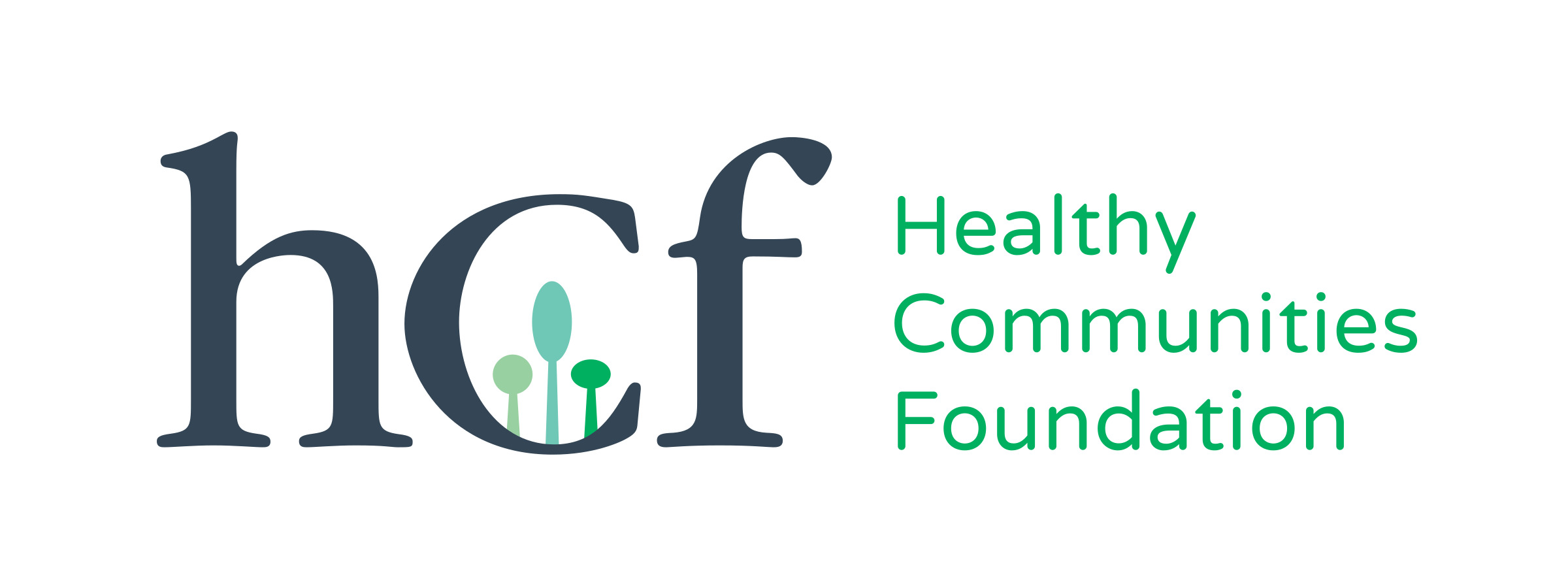While the concept continues to evolve, we aim to embody the following six fundamental principles that are at the center of trust-based philanthropy:
Our Approach to Trust-Based Philanthropy

- Posted at
- in Blog
- by Jackie Rodriguez
- . No Comments
The Trust-Based Philanthropy framework represents and guides our current efforts towards an equitable COVID-19 recovery in the Healthy Communities Foundation region. The framework is relatively simple, and its concepts collectively signal a different approach from transaction-oriented grantmaking and align with the core components of our strategic plan that center on deep engagement, learning, collaboration, and stewardship.
As a health-conversion foundation focused on health equity, we understand that making a significant impact in our region and work has to go beyond grantmaking—it has to also do with HOW we show up as a partner.
Multi-year, unrestricted funding
This signals the recognition that organizations best know where and how they need to invest in their work. It also recognizes that the social issues we aim to address are complex and will not be solved in a 12- month grant term nor within the confines of a single funders’ directive. Multi-year general operating support offers organizations the flexibility and foresight to plan and focus their time and expertise on their work rather than on our grant cycles.
Simplified and streamlined paperwork
We aim to reduce the burden and duplication of the grant application process by using technology and efficient internal processes. This is a critical equity marker for us; we recognize that organizations have various capacities to meet the requirements of different funders on top of fulfilling their mission. Data shows a disproportionate administrative burden on smaller and/or BILPOC-led organizations. We would rather focus our collective energy on our mission and relationships than complicated application and data tracking processes.
Solicit & act on feedback
From inception, we’ve recognized that our work would be most meaningful when informed by our communities’ expertise and lived experience. This is the backbone of our strategic plan and at the heart of our philanthropic practice: we build trust when we listen and act on what we hear from community. One example of this is our recently published Community Partner Insights Report, “Reimagining Health and Wellness: Building an Equitable COVID-19 Recovery with Community”.
Doing the homework
This means we expand how we think about our due diligence processes to understand organizations’ programs, leadership, and financial standing. We also revisit our grantmaking criteria annually to center the recent and relevant experiences of the communities that most deeply understand the issues we seek to address.
Be transparent and responsive
We model open communication with our partners, built on relationships and mutual accountability, aware of power dynamics, and our role as stewards of community resources. We seek not to be gatekeepers, but to facilitate access, not just to us but also to leverage other resources to our communities.
Offer support beyond the check
This means that we are responsive and adaptive in how to bolster local leadership, capacity, and organizational health. This manifests in various ways for us. Some examples include: sponsoring racial equity training coupled with reflective circles, shaping our capacity-building framework aligned with our values and goals, and serving as points of connection and leverage for our partners to other funders and funding collaboratives.
We’ll continue to share more about how we live out trust-based philanthropy in our work and how we show up in community.
For additional information, please visit the Trust-Based Philanthropy website which has been a source of information and inspiration for our approach.
We also recommend the book “Emergent Strategy: Shaping Worlds, Shaping Change” by adrienne maree brown. Her book explores the concepts of trust, connection, and power to inform and shift how we create change between us, around us, and in our own lives.

